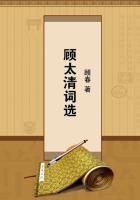As we have often shown, an essential distinction lies between what pleases simply in the estimate formed of it and what gratifies (pleases in sensation).The latter is something which, unlike the former, we cannot demand from every one.Gratification (no matter whether its cause has its seat even in ideas) appears always to consist in a feeling of the furtherance of the entire life of the man, and hence, also of his bodily well-being, i.e., his health.And so, perhaps, Epicurus was not wide of the mark when he said that at bottom all gratification is bodily sensation, and only misunderstood himself in ranking intellectual and even practical delight under the head of gratification.Bearing in mind the latter distinction, it is readily explicable how even the gratification a person feels is capable of displeasing him (as the joy of a necessitous but good-natured individual on being made the heir of an affectionate but penurious father), or how deep pain may still give pleasure to the sufferer (as the sorrow of a widow over the death of her deserving husband), or how there may be pleasure over and above gratification (as in scientific pursuits), or how a pain (as, for example, hatred, envy, and desire for revenge) may in addition be a source of displeasure.Here the delight or aversion depends upon reason, and is one with approbation or disapprobation.Gratification and pain, on the other hand, can only depend upon feeling, or upon the prospect of a possible well-being or the reverse (irrespective of source).
The changing free play of sensations (which do not follow any preconceived plan) is always a source of gratification, because it promotes the feeling of health; and it is immaterial whether or not we experience delight in the object of this play or even in the gratification itself when estimated in the light of reason.Also this gratification may amount to an affection, although we take no interest in the object itself, or none, at least, proportionate to the degree of the affection.We may divide the above play into that of games of chance (Gluckspiel), harmony (Tonspiel), and wit (Gedankenspiel).The first stands in need of an interest, be it of vanity or selfseeking, but one which falls far short of that centered in the adopted mode of procurement.All that the second requires is the change of sensations, each of which has its bearing on affection, though without attaining to the degree of an affection, and excites aesthetic ideas.The third springs merely from the change of the representations in the judgement, which, while unproductive of any thought conveying an interest, yet enlivens the mind.
What a fund of gratification must be afforded by play, without our having to fall back upon any consideration of interest, is a matter to which all our evening parties bear witness for without play they hardly ever escape falling flat.But the affections of hope, fear, joy, anger, and derision here engage in play, as every moment they change their parts and are so lively that, as by an internal motion, the whole vital function of the body seems to be furthered by the process-as is proved by a vivacity of the mind produced-although no one comes by anything in the way of profit or instruction.But as the play of chance is not one that is beautiful, we will here lay it aside.Music, on the contrary, and what provokes laughter are two kinds of play with aesthetic ideas, or even with representations of the understanding, by which, all said and done, nothing is thought.By mere force of change they yet are able to afford lively gratification.
This furnishes pretty clear evidence that the quickening effect of both is physical, despite its being excited by ideas of the mind, and that the feeling of health, arising from a movement of the intestines answering to that play, makes up that entire gratification of an animated gathering upon the spirit and refinement of which we set such store.Not any estimate of harmony in tones or flashes of wit, which, with its beauty, serves only as a necessary vehicle, but rather the stimulated vital functions of the body, the affection stirring the intestines and the diaphragm, and, in a word, the feeling of health (of which we are only sensible upon some such provocation) are what constitute the gratification we experience at being able to reach the body through the soul and use the latter as the physician of the former.
In music, the course of this play is from bodily sensation to aesthetic ideas (which are the objects for the affections), and then from these back again, but with gathered strength, to the body.In jest (which just as much as the former deserves to be ranked rather as an agreeable than a fine art) the play sets out from thoughts which collectively, so far as seeking sensuous expression, engage the activity of the body.In this presentation the understanding, missing what it expected, suddenly lets go its hold, with the result that the effect of this slackening is felt in the body by the oscillation of the organs.This favours the restoration of the equilibrium of the latter, and exerts a beneficial influence upon the health.
Something absurd (something in which, therefore, the understanding can of itself find no delight) must be present in whatever is to raise a hearty convulsive laugh.Laughter is an all action arising from a strained expectation being suddenly reduced to nothing.This very reduction, at which certainly understanding cannot rejoice, is still indirectly a source of very lively enjoyment for a moment.Its cause must consequently lie in the influence of the representation upon the body and the reciprocal effect of this upon the mind.This, moreover, cannot depend upon the representation being objectively an object of gratification (for how can we derive gratification from a disappointment?) but must rest solely upon the fact that the reduction is a mere play of representations, and, as such, produces an equilibrium of the vital forces of the body.















